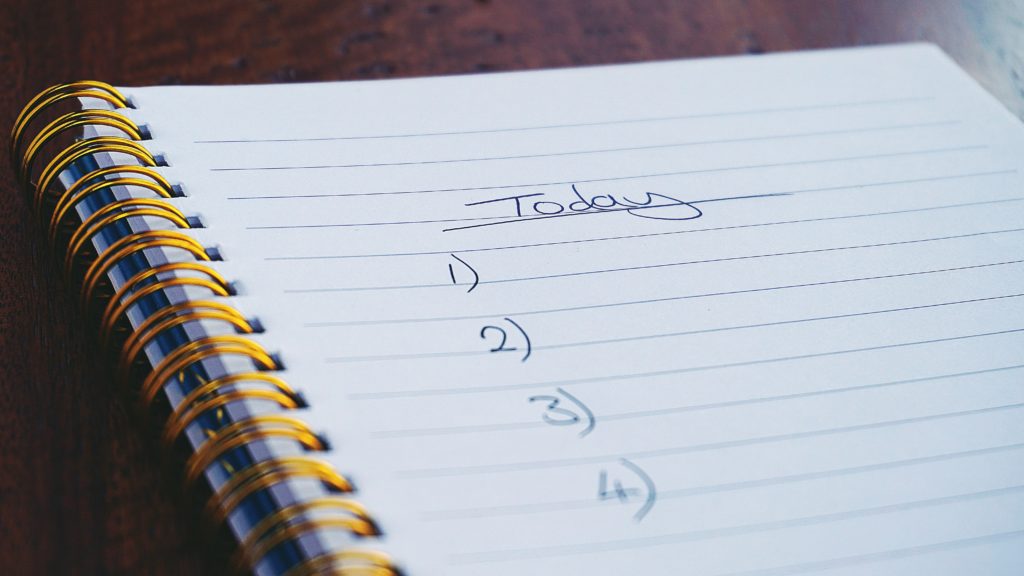
It’s That Time Again
It’s That Time Again https://csuiteold.c-suitenetwork.com/advisors/wp-content/uploads/sites/5/2022/01/For-article-Its-that-time-again-pexels-suzy-hazelwood-1226398-002-1024x576.jpg 1024 576 Tina Greenbaum https://secure.gravatar.com/avatar/b0ac996cc61bd84cf29087020c47f226?s=96&d=mm&r=gMotivation is high. Here come the New Year’s Resolutions
Yet, statistics say that 1/3 of resolutions don’t make it past the first 3 weeks in January.
While we are hyper-focused on achieving our goal at the onset of the new year, we tend to lose that level of focus – and our commitment to change becomes diluted.
How can we improve the odds – so when the next new year comes around, we’ll have that new habit firmly in place and can move on to a different challenge in our journey of personal growth?
Neuroplasticity[1] (defined as the brain’s ability to change by strengthening or weakening neural activity and connections…to reorganize itself throughout life) can give us some answers. To make a complicated topic more accessible, I like to think of the process of change from the perspective of two laws.
The first is called Hebb’s Law[2]. It states that neurons that “fire together wire together.” In other words, when we are laser focused on one particular object or thought or action over and over again, we begin to strengthen the new neural pathways that will become, over time, automatic. This is the foundational process by which the brain changes and organizes itself.
The second concept comes from Quantum Physics, called the Observer Effect. [3]This theory establishes that the very act of “watching” can change our reality. This concept is the basis of Mindfulness (defined as “Noticing, in the present moment without judgement).”
So, if we put these two laws together, Hebb’s law – which works through mental focusing and holding our attention, and the Quantum physics law of “watching” to change matter, we end up with creating new neural firings and new neural connections, which translates into creating new behavioral habits, which is the ultimate goal of our New Year’s Resolutions.
Bringing this down to a very practical level, let’s see how this can work for you.
To get started:
- Pick a challenge that you would like to declare as your New Year’s Resolution. I recommend you pick one – that if you were to accomplish it – would have a significant impact on your life.
- Being truthfully honest with yourself, on a scale of 1-10, rate your level of commitment to change. I guarantee, if it’s not an 8 or higher, your chances of success are minimal. In a ceremonial way, say to yourself, [4]“I choose to_______”.
If your intention if very clear and your “why” is bigger than your desire for immediate gratification, then victory is in your grasp.
For example, let’s say you want to train yourself to exercise in the morning before you eat your breakfast. Your doctor tells you it’s important for your health. For years, your habit is to get up, get in the shower, then to have your breakfast. This is how you are wired. Every night you remind yourself that you want to exercise in the morning. You get up, you shower, and then have your breakfast—only to remember when you’re having your breakfast that you didn’t exercise. The third morning, you remember while you’re in the shower that you didn’t exercise. You leave yourself a note on the shower door…and by the fifth morning, you remember to exercise before you get into the shower. As you watch your behavior and leave yourself clues, you get quicker and quicker at remembering your goal, which was to exercise, until you’ve created a new routine. Typically, it takes 30 to 40 days to create a new habit which means it takes 30 to 40 days to create the new neural pathway.
- Have an accountability buddy. If you’ve made many attempts in the past and have not been able to sustain your commitment to yourself, find someone who will support you in this journey. A quick call or text is all you need to touch base.
The only thing we can count on in life is change, yet human nature resists change on many levels. Understanding your own resistance to change and how it manifests in your life is valuable information as a leader of self and a leader of others – and may require further investigation. But if you are serious about moving the needle on some old habits, getting laser focused on what you want to achieve and observing yourself without judgement are a winning combination.
[1] https://www.medicinenet.com/neuroplasticity/definition.htm
[2] https://www.historyofinformation.com/detail.php?id=3902
[3] https://en.wikipedia.org/wiki/Observer_effect_(physics)
2 https://www.historyofinformation.com/detail.php?id=3902

